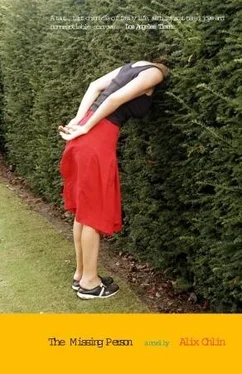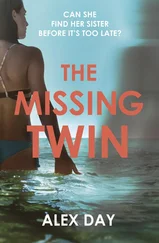This made a certain kind of sense, I thought, although it might’ve been due to the gin. “You think about this stuff a lot, don’t you?” I said.
“I guess so. I have time, while I’m unclogging somebody’s sink, to consider the larger implications.”
“So how does being a plumber fit in with all your group activities?”
“It’s all connected.” He opened his wallet and withdrew a folded piece of paper, an intricate, hand-drawn diagram, rather beautiful, of pipes and arrows overlaid in a complex geometry. There were tanks and tubes and valves and other mechanical forms that I couldn’t begin to identify, each labeled with neat, tiny letters going down the alphabet.
“What is it?”
“It’s the future of plumbing,” he said, and his eyes held mine in a brief, electric moment before he went on. “Citywide composting toilets. Gray-water usage and flow constrictor fittings and pipes made of recycled plastic. A quasi-steady state system that will restore logic to the human component of the hydrologic cycle. In twenty years, when the Beam model is fully implemented, our current plumbing equipment will seem as grotesque and outdated as the shit-filled streets of the Middle Ages.”
“Wow,” I said.
He nodded and put the paper away. Round three followed with reassuring speed. Jeanine sang a couple more numbers. Angus talked about the ideology of plumbing and ran his hands through his red hair until it was poking out all over. I felt the gin coursing through my veins. At some point — who knows when? — he stood up and threw some loose bills on the table, grabbed my hand, and pulled me to my feet. We waved good-bye to Jeanine and then we were standing in the parking lot of the motor lodge, next to a red pickup truck, kissing like crazy.
Things were soft and warm and endless. The moon shone somewhere behind my right eye. I leaned back against the body of the truck and pulled him toward me until his hips ground against mine. I felt a crucial need to be naked. In the shadowy air of room 102, comforter thrown to the carpeted floor, thin sheets slippery against my skin, I ran my hands over his warm shoulder muscles and down to the small of his back; he touched me everywhere. We had sex, passed out, woke up, had sex again.
When I woke up the second time it was only midnight. This seemed implausible, even shocking, but I guessed that when you start drinking in the afternoon, you open up a lot of extra time in the evening. I peered through the blinds at the parking lot, my stomach quivering and uneasy. A low, lumbering shape I hoped was a raccoon was nosing around the trash can by the ice machine. Music was playing distantly. Angus Beam lay with his cheek pressed into the pillow, his face crumpled and red, snoring lightly, one freckled arm flung over the side of the bed, the fingers grazing the floor. His skin glowed in the dim light like a Renaissance nude’s. His smell was on my skin.
I was in the car before it occurred to me that I was still drunk and shouldn’t be driving. The city streets were wide and empty, though, the white lines like arrows directing me home, and I floated above it all, directing the car from a great and mighty distance, like a ship in space. I was home and in bed in what seemed like no time at all, and fell into unsettling, science-fiction dreams stippled with images so bright they almost woke me up. In one, my father came back to us, older, silver-haired, and confessed that he hadn’t died at all; in another, the sun turned from yellow to red, an apocalyptic event signaling environmental catastrophe, and cascaded down toward the earth where, just before impact, it became the red hair of Angus Beam.
My bladder woke me at four-fifteen. I went to the kitchen to down some more water and was leaning against the counter drinking when I heard noises outside, and for a second I just waited, my stomach trembling. Sidling up to the living-room window, I could see a figure in the driveway beneath the jaundiced rays cast by a streetlight. My brother was standing there in the dark, bent under the open hood of the Caprice.
“Hi,” I said.
Wylie jumped about a foot in the air and dropped the dipstick, which clattered loudly against the asphalt.
“Lynnie,” he said, “what the hell are you doing here?”
“I was about to ask you the same question.”
“I’m checking the oil.” He picked up the dipstick and held its tip in front of his face, scowling at it. The oil mark was just barely visible in the wan light. “Have you been driving my car?”
“Maybe,” I said.
He shook his head and turned again to the engine. His dark-blue T-shirt said CAMP KIKOWAWA 1992 on the back. Underneath the worn cotton his scrawny shoulders stuck up in points, and his dark hair hung down in a skinny, knotted braid. I was sure I weighed more than he did.
“What are you doing at home?” he muttered to the car.
“I came back to visit,” I said. “Where the hell have you been?”
“Bisbee,” he said.
“I sent you an e-mail weeks ago telling you I’d be back. I’ve been looking for you.”
“Bisbee, Arizona.”
“What’s in Bisbee, Arizona?”
This question met with a long, irritated pause, during which Wylie reinserted the dipstick, drew it out again, and examined it, scowling all the while. I leaned against the side of the car and waited.
“Bisbee, Arizona,” he finally said, “is what’s in Bisbee.”
“I never would’ve guessed. You’re being kind of annoying, by the way.”
“Well, you would know.”
“Wylie.”
“Lynn.”
I crossed my arms. Wylie slid his scrawny body under the car and started tinkering around down there. I sat down in the driveway, my head still swimming a bit in the aftermath of drinks and sex and sleep, and looked up at the sky. The moon was fat and sagging. Far down the block a couple of dogs were barking at it testily from their yards.
Wylie’s feet stuck out from beneath the car, the toes of his sneakers pointing and flexing as he shifted his weight. I could hear him grunting. Across the street Mrs. Sandoval’s rock lawn gleamed in the moonlight. Near my right hand a cockroach sped across the asphalt, and I shuddered and stood up. Our house was dark, and my mother was in there sleeping.
“Wylie,” I said to his grimy shoes, “Mom really wants to talk to you.”
“I know.”
“Why don’t you sleep over?”
“I can’t.”
“Just stick around for breakfast. Fifteen minutes, so she can see you. A cup of coffee.”
“I don’t drink coffee,” he said.
“Yeah, like that’s the point.”
A clanging, rusty sound came from under the car; then Wylie said, “Shit!” and scooted out with oil on his face. “See what you made me do?”
“Sorry,” I said, and laughed.
He gave me a mighty scowl and stood up, then closed the hood of the car and started gathering up his tools.
“Wylie?”
“I can’t talk to her.”
“Why not?”
“Because she doesn’t understand the kind of life I’m trying to live. She can’t admit that I’m an adult making serious moral choices.”
“Those are your actual reasons?”
“Plus she nags me all the time.”
“You could stand it for fifteen minutes.”
He thrust the tools angrily into a backpack and shouldered it. When I touched his arm, he flinched. His skin was darkly tanned, his face drawn, and his wrist was hardly thicker than mine.
“No, I couldn’t,” he said, then strode down the driveway, his back slouched under the weight of his backpack. He looked like a thirteen-year-old heading off to school. Above him, the sky had already begun to lighten in preparation for sunrise. Two condos down he turned around. “If you absolutely have to drive the car,” he said, “take care of it.”
Читать дальше












